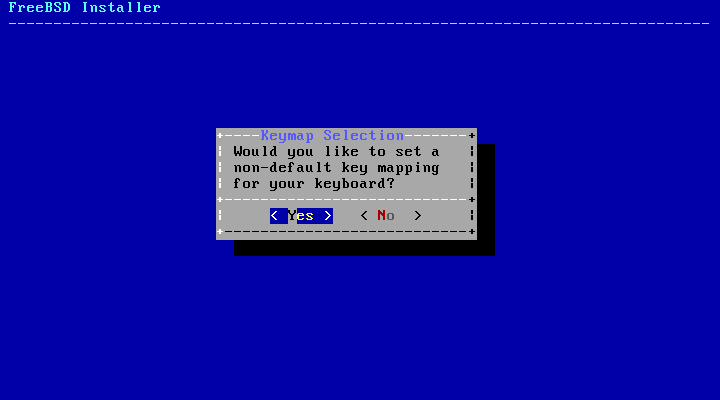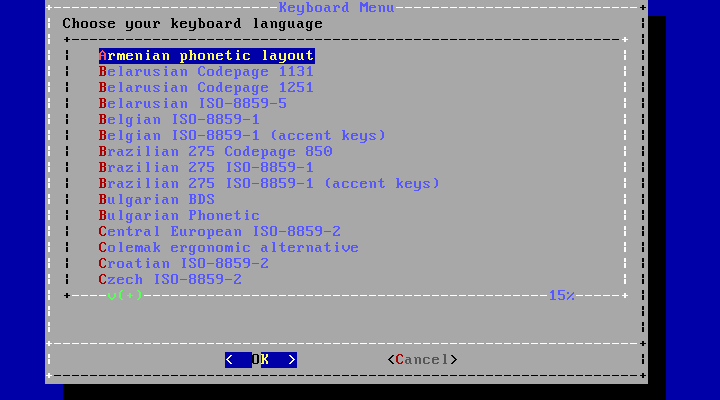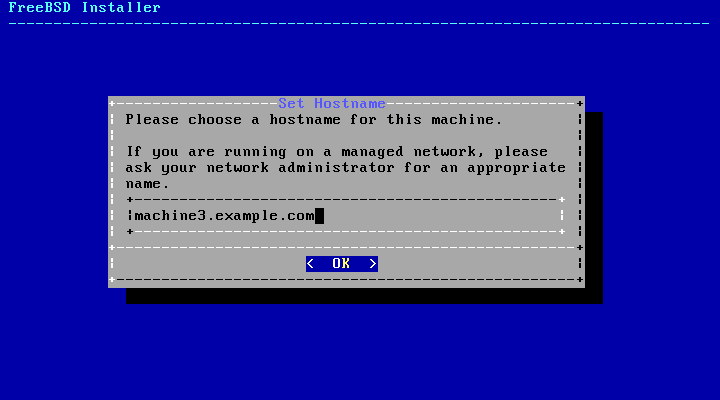bsdinstall is a text-based FreeBSD
installer program written by Nathan Whitehorn <nwhitehorn@FreeBSD.org> and introduced in
2011 for FreeBSD 9.0.
Note:
Kris Moore <kmoore@FreeBSD.org>'s pc-sysinstall is
included with PC-BSD,
and can also be used to
install FreeBSD. Although sometimes confused with
bsdinstall, the two are not
related.
The bsdinstall menu system is controlled by the arrow keys, Enter, Tab, Space, and other keys.
Depending on the system console being used, bsdinstall may initially prompt to select a non-default keyboard layout.
If is selected, the following keyboard selection screen will be displayed. Otherwise, this selection menu will not be displayed, and a default keyboard mapping will be used.
Select the keymap that most closely represents the mapping of the keyboard attached to the system, using the up/down arrow keys and pressing Enter.
Note:
Pressing Esc will use the default keymap. is also a safe option if the choice of keymap is not clear.
Next, bsdinstall will prompt for the hostname to be given to the newly installed system.
The entered hostname should be a fully-qualified hostname,
such as
machine3.example.com
Next, bsdinstall will prompt to select optional components to install.
Deciding which components to install will depend largely on the intended use of the system and the amount of disk space available. The FreeBSD Kernel and userland (collectively the “base system”) are always installed.
Depending on the type of installation, some of these components may not appear.
doc- Additional documentation, mostly of historical interest. Documentation provided by the FreeBSD Documentation Project may be installed later.games- Several traditional BSD games, including fortune, rot13, and others.lib32- Compatibility libraries for running 32-bit applications on a 64-bit version of FreeBSD.ports- The FreeBSD Ports Collection.The ports collection is an easy and convenient way to install software. The Ports Collection does not contain the source code necessary to compile the software. Instead, it is a collection of files which automates the downloading, compiling and installation of third-party software packages. Chapter 5, Installing Applications: Packages and Ports discusses how to use the ports collection.
Warning:
The installation program does not check to see if you have adequate space. Select this option only if you have adequate hard disk space. As of FreeBSD 9.0, the FreeBSD Ports Collection takes up about 500 MB of disk space. You can safely assume a larger value for more recent versions of FreeBSD.
src- System source code.FreeBSD comes with full source code for both the kernel and the userland. Although not required for the majority of applications, it may be required to build certain software supplied as source (for example, device drivers or kernel modules), or for developing FreeBSD itself.
The full source tree requires 1 GB of disk space, and recompiling the entire FreeBSD system requires an additional 5 GB of space.



